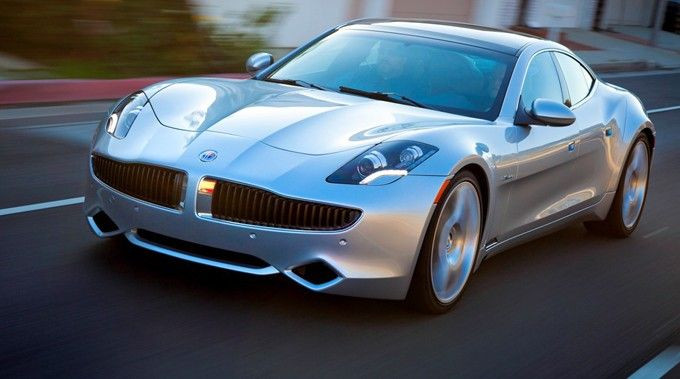
Earlier today, Fisker Automotive Inc. has announced that the electric car-maker has hired Tony Posawatz as the new CEO to lead the company. Tony Posawatz replaces CEO Tom LaSorda, who was the former CEO for Chrysler before he became a part of Fisker for no more than 6 months.
Tony Posawatz's credentials seem to perfect for leading Fisker. Before retiring from GM a month ago, Posawatz was the head of GM's Chevrolet Volt extended-range EV program. In a statement, LaSorda said, "Tony is the perfect CEO for Fisker. He has been at the forefront of the industry's technological revolution and one of the few people in the world to bring an EV to mass production. Part of my assignment at Fisker was to recruit a long-term CEO, and I cannot think of a better person than Tony to take us forward. He is a real product guy for a product driven company."
Joining Posawatz is Joseph Chao for executive vice president and CEO of China and Asia. Chao had previously worked at GM, Chrysler and Daimler Chrysler. Fisker also named Alberto Gonzalez as Vice President of Manufacturing. Gonzalez formerly worked at Chrysler, operating its high-volume assembly plants in North America.
The addition of Posawatz, Chao, and Gonzalez aren't the only major shifts that are occurring at the top of Fisker's corporate ladder; just last month, former Ford exec Jim Yost was hired to be the new CFO for Fisker.
Given the restructuring, it should come to no surprise that as the new CEO, Posawatz will be facing a lot of challenges that are both immediate and daunting.
The briefly introduced Fisker Karma had already suffered a recall, two service upgrades, a slow production ramp-up, as well as quality flaws both large and small. Fisker's lithium-ion battery supplier A123 Systems has suffered recalls as well, further delaying Fisker's production efforts.
Another challenge is the growing pressures of a possible safety defect. Earlier this summer, Fisker and A123 suffered serious criticism after a Karma electric vehicle in Woodside, Calif., was involved in a spontaneous fire that was allegedly sparked from a defective battery cell. Upon further investigations, investigators determined that the source of the fire was neither from the lithium-ion battery park, the new tech components, nor Fisker's exhaust routing. In other words, Fisker has yet to figure out exactly what had gone wrong.
Refusing to cut the start-up any slack, U.S. senators further questioned and criticized the Energy Department's decision to loan Fisker $529 million and to loan $249 million to lithium-ion battery start-up A123. Then, responding to the pressures, the Energy Department had frozen the rest of the loan last year.
Following the introduction of the Karma, Fisker announced the development of its second vehicle in the range, the Fisker Atlantic. Intended to be the larger volume seller of the two vehicles, the Atlantic first debuted during April's New York International Auto Show. Unfortunately, due to the many challenges that the Karma currently faces, the Fisker Atlantic's production schedule has slipped as well.
Given the situation, it seems as though nobody in their right mind would have taken upon such a stressful leadership role at Fisker. However, electric-car advocate Chelsea Sexton assured that Posawatz, "loves this sort of underdog challenge and the potential to do cool stuff."
Sexton adds, "Tony's industry respect, experience, and connection to top talent in the electric-car world will help Fisker more than dollars would at this point."
[Source: Detroit News, Green Car Reports]




